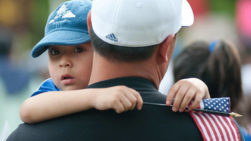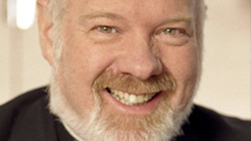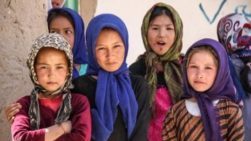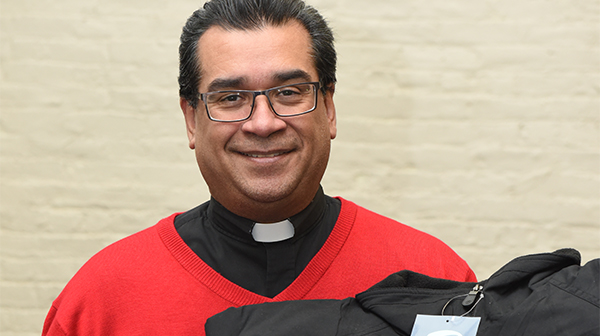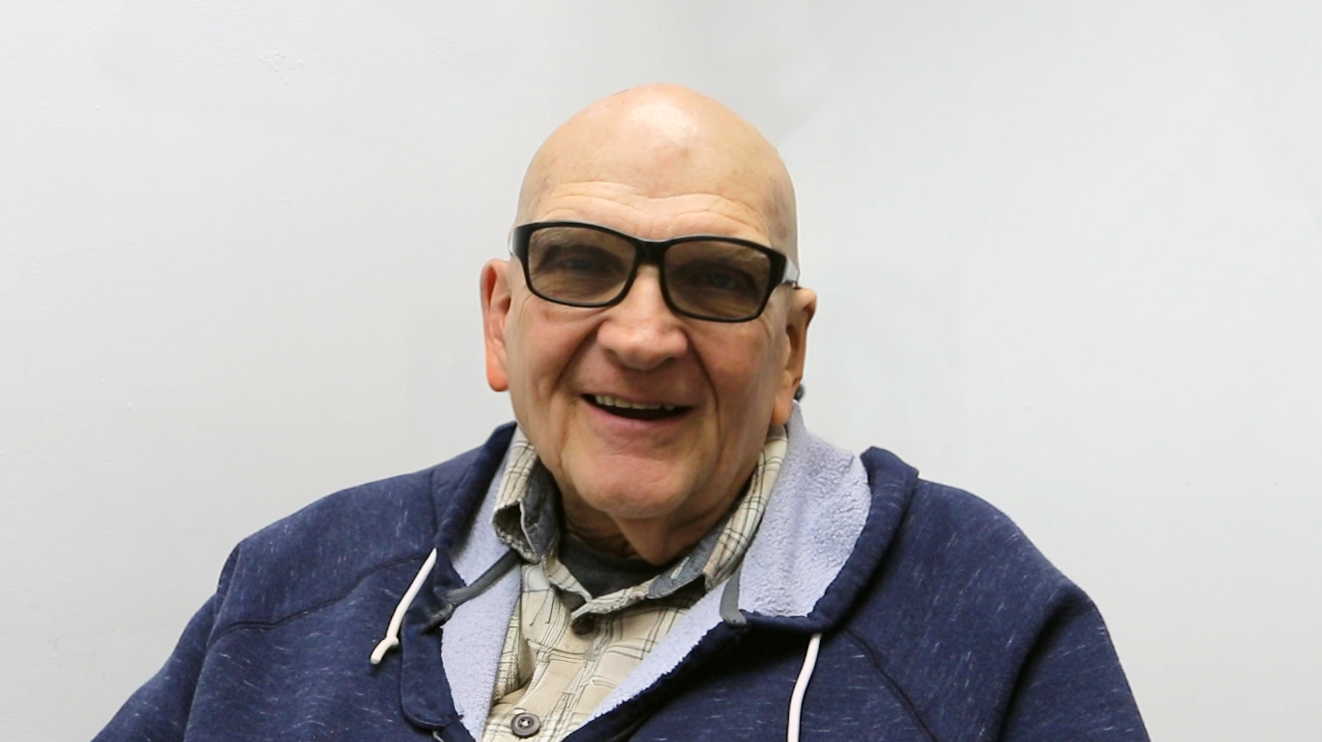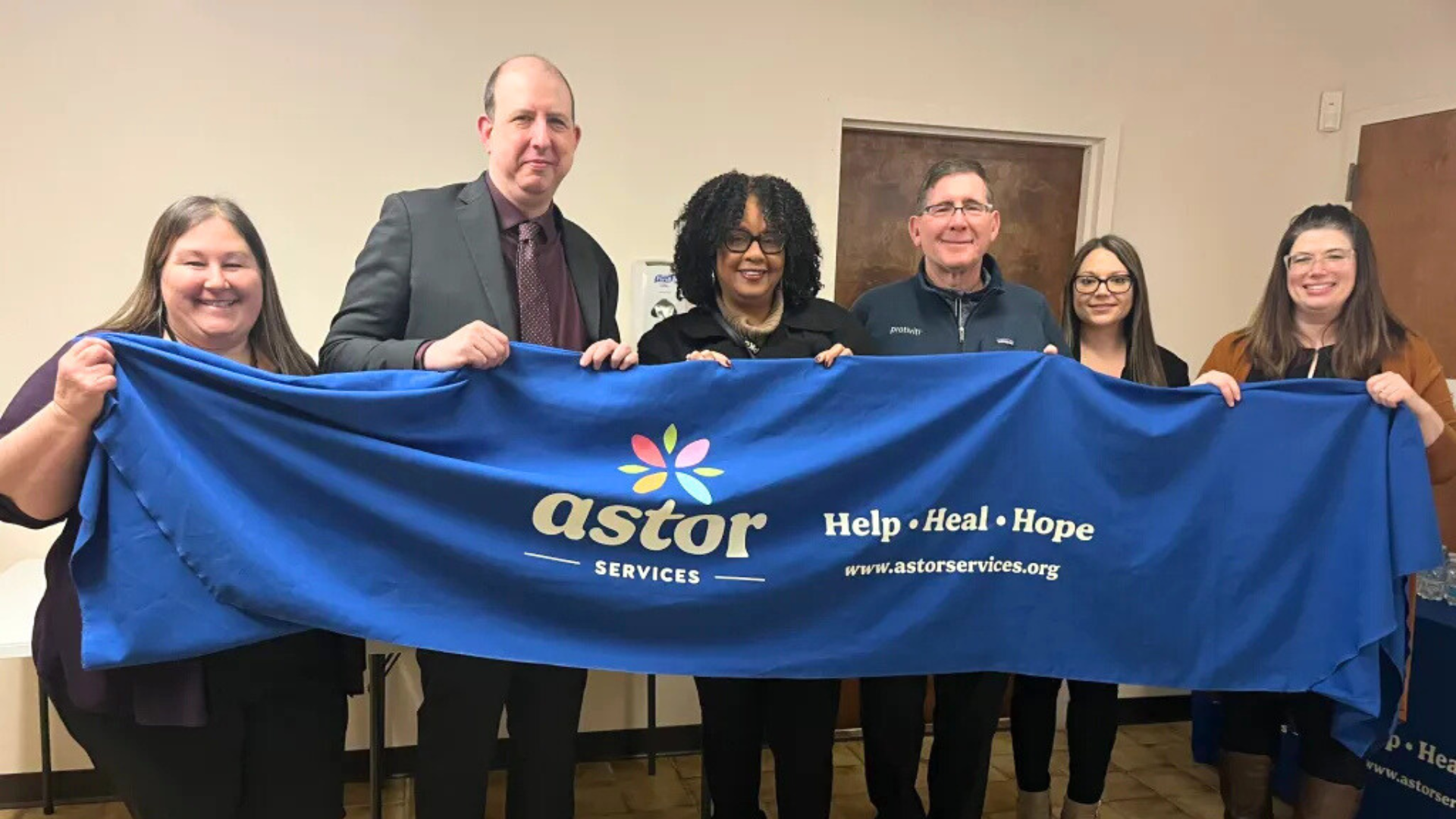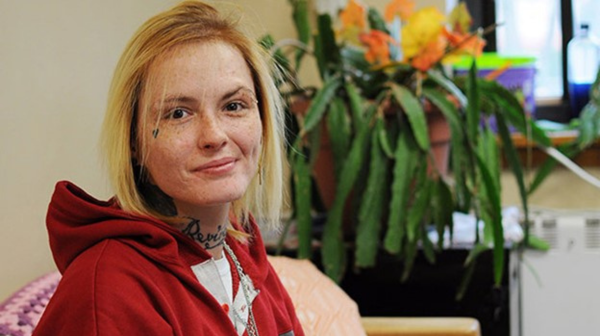Father Eric Cruz went through seminary and graduated from the University of Notre Dame. Yet his most valuable education for his role as Bronx regional coordinator for Catholic Charities could well be the knowledge that but for the grace of God, he could need help like anyone who knocks on the door.
He knows what it’s like to spend nights in a homeless shelter – not as a volunteer or as paid staff – but because rent outpaced his ability to pay. He knows what it’s like when the month outlasts the paycheck.
For a half hour Father Cruz put off three phone calls seeking his attention. The phone is often busy. Father Cruz is, besides his work at Catholic Charities, the administrator of Holy Spirit Parish in the Bronx and also works in the archdiocesan Latino ministries. The priest, in a recent interview, recalled a life that took him from the Bronx, to Notre Dame, to careers in education and newspaper reporting in northern Indiana and southern Michigan. And then his return to the Bronx, this time as a priest with the support of the congregation at St. Augustine’s Church, where he grew up and where congregants noted his potential for ministry.
His work as a priest – he was ordained in 2003 when he was 39 years old – is a case of “a jack of all trades,” noted Father Cruz, who served as pastor at St. John Chrysostom Church, also in the Bronx, before being named to Holy Spirit.
Catholic Charities is as integral to his priestly vocation as any parish work.
“It is the mission of the Church,” he said, noting that he supervises case management, eviction counseling, food pantries, housing needs and immigration services, among others. The work of Catholic Charities, he emphasized, is “part of the very fabric of the Church.” The power that faith combined with charity can exert is a lesson he learned after graduating from Notre Dame with a degree in American Studies with a minor in journalism. Father Cruz worked with the children of migrant farmworkers in southern Michigan as a public school teacher for a few years and, then, after landing a job as a reporter for the South Bend Tribune newspaper, he reported on crime, sports, and features.
Each story provided a human angle, whether it was of a crime victim, a little girl recovering from severe burns, or World War II veterans who fought in North Africa at a convention in South Bend.
“It’s so personal, it’s very human,” he said, noting that as a reporter, he wanted to tell stories that made a difference.
He learned how to tell a story, connect with a reading public, organizing random thoughts into a coherent whole. It’s a skill he uses in preaching as a priest. But more so he learned about how struggles transform people. He reported on a seven-year-old girl, with a bandaged head, the result of a fire. He remembers “the joy that she still radiated as a child” and discovered, within himself, the gift of empathy. “I realized what my Mom went through,” he said, noting a car accident in the Bronx he was part of the summer before his first year in college, where he recovered for months in three hospitals and at home.
He reported on the Desert Rats convention, World War II veterans, many of whom were just teen-agers during the war, men of all ethnic backgrounds thrown together in a common cause who embraced their commander as a father figure with influence that they carried with them throughout their lives.
As he reported on the struggles of others, Cruz underwent his own travails, a result of a combination of high student loan debts and the low salaries of reporters in daily newspapers at medium-sized towns in the Midwest. “I was having a hard time making ends meet,” he recalled. A third of his salary was garnished to meet student loan debts. He lived on Burger King and Domino’s Pizza: “that’s all I could afford,” he said. He knew what poverty was like – his mother struggled rearing him and his five siblings back in the Bronx – but like many parents, she kept the harsh details to herself. He never felt the sting of poverty while growing up in the Bronx. But he felt it as a struggling reporter in South Bend.
“I was very prideful,” he said. “I didn’t share it with anyone … It was a blow to the ego. There was the shame and humiliation I was feeling.” Before landing with friends who put him up for a year, he spent time in a homeless shelter.
As he told NET-TV’s Ed Wilkinson in 2019 the shame of his predicament was overwhelming. “What do I tell them?” he remembered his feelings at the time, wondering what his family would think about “the college graduate who had nothing to show for it.” He was compelled to return to New York and, when visiting St. Augustine’s Church and serving Sunday Mass, began to feel a tug towards priesthood, a calling that had been a part of his life ever since his teen years. He noted how, in his work in northern Indiana as an educator and reporter, people would regularly ask him if he had ever considered priesthood. He remembered that as he applied to seminary.
As he told Wilkinson, Father Cruz believes that there was a Divine purpose to his struggling post-college years, helping to form the priest he would become. He now brings that feeling of empathy to his work in the parish and with Catholic Charities.
The years of struggle have paid off in ways he never intended. When a college student comes to a food pantry, Father Cruz knows what it’s like. When families struggle around the holidays, he knows what it’s like to get gifts from Catholic Charities that will make the season happen for children in struggling families. “The people feel a sense of peace and consolation,” he said, noting that the empathy goes beyond sympathy. It’s about “knowing what that person is experiencing.”



